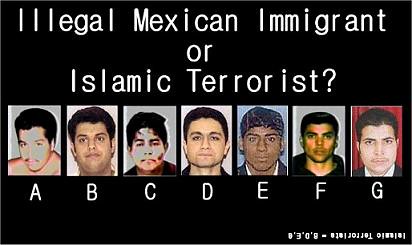I was reading online and found out about a book which has been hyped-up in the most amazing way. The book is called Liber Decatriarchia Mystica and is written by Wahid Azal (who in the past has gone by the name of Nima Hazini). My understanding is that he is an ex-Bahai who later became a Babi (a member of the religion which was the Bahai faith's most immediate ancestor) but that now he is on a much more ecclectic and individualistic path which is influenced by Babism, Qabbalah, Islam, shamanism and the teachings of Aleister Crowley.
One review says:
A second review I found adds:
I would probably disagree with Wahid Azal on a large number of points (especially Crowley I think) but I was still struck by the range of influences he invokes in his work. I found the description of the book incredibly provocative (although not tempting enough to justify the price). What resonates the most with me is the idea that in some ways Planet Grenada also brings together wildly disparate topics and influences. (including Guevara, Fanon, Ibn' Arabi, Liberation Theology, something similar to Theosophy, and even some Nietzsche on the side). My hope is that somehow I've managed to be deep without being esoteric, broad and comprehensive while coherent, spiritual while remaining socially relevant. How am I doing?
One review says:
This book introduces the Qabbalah of Bayani Gnostic Universalism via the qabbalistic Tree of Reality of 13 Spheres and 36 Subtle-Ray Pathways. The main portion of the work is the author's inspired re-write of the Sefer Yetzirah (Book of Creation) to reflect this qabbalistic Tree. LIBER DECATRIARCHIA MYSTICA is Hermeticism, the post-Islamic Bayani gnostic path and the High Sufism of Ibn 'Arabi married to shamanism and Qabbalah. The author also challenges prevailing assumptions regarding the legitimacy of Rabbinic Judaism, Paulianist Christianity, Sunni Islam and modern Baha'ism. This book, not for the feint hearted, is sure to generate controversy. The author advocates for a Liberation Theosophy and the establishment of a Theophanocracy by a Universal Global Gnostic Ecclesia. This is a Green leftwing political manifesto and a high esoteric magnum opus all rolled into one!
A second review I found adds:
Azal also re-appropriates the discourse of gnosis and esotericism away from the Right and brings it back to the (Green) Left by arguing for a Liberation Theosophy and Theophanocracy. If Che Guevara and Franz Fanon were to meet Jacob Boehme and the Sufi Ibn ‘Arabi, fuse into one person, we would find Wahid Azal, a radical twenty-first century prophet of gnosis and a Nietzchean “esoteric” Zarathustra for our times.
I would probably disagree with Wahid Azal on a large number of points (especially Crowley I think) but I was still struck by the range of influences he invokes in his work. I found the description of the book incredibly provocative (although not tempting enough to justify the price). What resonates the most with me is the idea that in some ways Planet Grenada also brings together wildly disparate topics and influences. (including Guevara, Fanon, Ibn' Arabi, Liberation Theology, something similar to Theosophy, and even some Nietzsche on the side). My hope is that somehow I've managed to be deep without being esoteric, broad and comprehensive while coherent, spiritual while remaining socially relevant. How am I doing?

